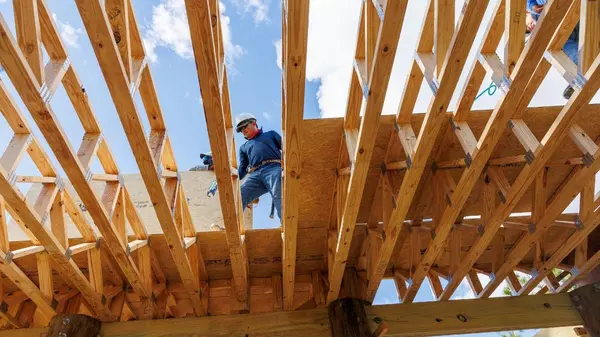Divorce Home Appraisal: How Do They Work and Who Foots the Bill?

Divorce can be both emotionally and financially complex, with one of the significant issues to resolve being what happens to the marital home. To divide assets fairly, a divorce home appraisal must provide an objective assessment of the property’s fair market value, serving as a foundation for negotiations or court proceedings. Beyond understanding the home preparation and process, many parting couples struggle to figure out who pays for the home appraisal in a divorce.
Whether you’re working through a divorce home appraisal in Austin, TX, or Denver, CO, this Redfin real estate guide breaks down appraisal costs, how the process works, how to prepare, and why a home appraisal for divorce settlement is often unavoidable.
What happens to your home when you get a divorce?
When couples divorce and shared assets must be divided, the family home is often the most valuable property at stake. Several options are possible: the home may be sold and the profits divided, one spouse may buy out the other’s share, or in some cases, both parties may retain joint ownership for a time, such as when minor children are still living in the home.
Regardless of which path is chosen, determining the property’s fair market value is essential. A house appraisal for divorce ensures that the division is based on an objective number, reducing the risk of unfairness, disputes, or even court rejection of the proposed settlement.
How do you decide if it’s best to sell the home or keep it?
Determining whether to sell or keep the home depends on several intertwined factors. Market conditions, financial stability, and emotional considerations all play a role.
- Selling the home: Selling allows spouses to divide net proceeds and walk away with cash. This can be clean and straightforward, though it depends on market timing and demand.
- One spouse keeps the home: If one party wants to stay, perhaps to maintain stability for children, then a home appraisal for divorce is critical. The spouse keeping the property typically refinances the mortgage and buys out the other’s equity based on the appraised value.
- Deferred sale: Some courts allow a “deferred sale of home order,” meaning the home remains jointly owned for a period before being sold. This is less common and usually court-ordered.
Ultimately, both financial and legal professionals encourage basing this decision on a reliable valuation to avoid disputes.
How to prepare for a divorce home appraisal
Preparing for an appraisal doesn’t mean staging the house for sale, but presentation does matter. A few practical steps include:
- Cleanliness and repairs: While deep cleaning won’t change square footage or lot size, a tidy, well-kept home suggests better maintenance and can subtly influence perception. Many people wonder if your home needs to be clean for an appraisal, and while dirt alone won’t sink your value, small neglected details might.
- Documentation: Provide records of upgrades, renovations, or new systems (roof, HVAC, appliances, etc.). This ensures the appraiser has the full picture.
- Accessibility: Make every area of the home accessible so the appraiser can complete their inspection efficiently.
These steps won’t override market data, but they help present the home in the best light during a sensitive process.
How much does a divorce appraisal cost?
The cost of a divorce appraisal typically ranges from $400 to $700, depending on property size, location, and complexity. High-value homes, unique properties, or rural estates may cost more. In contested cases, where each spouse hires their own appraiser, costs can double.
You may be wondering, who pays for a home appraisal in divorce? Costs are often shared equally by both spouses. If one party insists on a separate appraiser, they usually cover that expense. Courts sometimes order cost-sharing, especially if the appraisal is central to property division.
Why a divorce appraisal is necessary
A divorce appraisal is often unavoidable because it provides the foundation for fair and enforceable property division. First, it offers an objective valuation of the home, giving both spouses an impartial figure that helps prevent disputes. It also supplies a credible record for courts and mediators, ensuring that settlements are supported by reliable data rather than guesswork.
Accurate market value is especially important during negotiations, whether the goal is to divide equity or structure a buyout. In addition, if one spouse plans to keep the home, most lenders require a formal appraisal before approving a refinance. Without this step, couples risk relying on online estimates or outdated tax records, which rarely hold up in legal proceedings and can lead to unfair outcomes.
How is home value determined in divorce?
Appraisers use several established methods to determine the value of a home in a divorce. Each approach provides a different perspective, and sometimes multiple methods are applied for a well-rounded conclusion:
- Comparable sales (Sales comparison approach)
The most common method for residential properties, this approach relies on recent sales of similar homes in the same area. The appraiser makes adjustments for differences like square footage, condition, and upgrades to ensure accuracy. Since it reflects what buyers are currently paying, it’s widely accepted as the best measure of fair market value in divorce appraisals. - Cost approach
This method estimates what it would cost to rebuild the home at today’s material and labor prices, then subtracts depreciation for age and wear. It’s especially useful for newer homes, unique properties, or areas with few comparable sales. While less common in divorce cases, it provides a helpful secondary check on value. - Income approach
Used mainly for rental or investment properties, this method bases value on the income a property can generate. The appraiser reviews rental income, expenses, and market rental rates to calculate potential return on investment. It’s critical when dividing income-producing properties like duplexes or multi-family units in a divorce.
The final number represents fair market value — not necessarily what a buyer will pay tomorrow but what the market indicates is reasonable today. This distinction is important when considering appraisal vs fair market value in divorce.
What to expect during the process
A divorce appraisal typically follows a clear and structured process:
- Appraiser selection: Both spouses may agree on a neutral appraiser to reduce conflict and share costs. In contested cases, each party may hire their own appraiser to ensure independence.
- Property inspection: The appraiser reviews the home’s size, layout, condition, upgrades, and deferred maintenance. Photos and notes are taken to document features that influence value.
- Market analysis: Comparable home sales (“comps”) are researched and adjusted for differences in location, lot size, square footage, and amenities. This ensures the valuation reflects true local market conditions.
- Report generation: A written appraisal report is produced, detailing valuation methods, comparable sales data, and the final opinion of value. This report serves as the foundation for negotiations, refinancing, or court proceedings.
Knowing how appraisals work in divorce helps reduce surprises, promotes fairness, and makes the process more transparent for both spouses.
What happens when the divorcing couple can’t agree on the appraisal?
Disputes over a home’s value are common during divorce, with one spouse often believing the property is worth more while the other argues for less. In these situations, couples have several options: they may each hire their own appraiser and compare results, allow a judge to weigh competing reports, appoint a neutral expert, or work with a mediator who uses appraisal data to guide compromise.
When a low appraisal in divorce occurs, frustration is natural, but the number generally cannot be rejected outright. Instead, spouses can challenge the valuation by presenting additional evidence or requesting a second opinion to ensure fairness.
Key considerations when approaching a divorce appraisal
Before finalizing your approach, keep these factors in mind:
- Timing: Property values fluctuate, and an appraisal six months earlier may no longer be accurate. Market conditions, interest rates, and neighborhood trends can significantly influence value in a short time. For this reason, many attorneys recommend obtaining the appraisal as close as possible to the settlement date.
- Appraiser qualifications: Choose an experienced divorce appraiser who is familiar with your local market. An appraiser with specialized training in divorce cases understands the unique documentation courts require. Their credibility can make a difference if the valuation is challenged in mediation or court.
- Cost sharing: Expect to split fees unless otherwise agreed or ordered by a judge. If one spouse insists on hiring a separate appraiser, they typically bear that cost alone. Being upfront about cost-sharing early in the process can reduce financial disputes later on.
- Refinance requirements: Remember that a divorce appraisal and a refinance appraisal may involve different standards or purposes. Lenders may require their own appraisal to ensure the loan meets underwriting criteria, even if a divorce appraisal was already completed. Couples should plan for the possibility of two separate appraisals if refinancing is part of the settlement.
FAQs about divorce home appraisals
How to estimate home value in a divorce?
You can start with online valuation tools like Redfin’s Home Value Estimator, but these are not legally binding. For divorce, only a licensed appraiser’s report carries weight in court.
What things should you not say to an appraiser?
Avoid statements that downplay your property (“the roof is falling apart”) or exaggerate without proof (“we remodeled everything”). Stick to facts and provide documentation.
Can a cash offer be a good option during divorce?
Accepting a cash offer can eliminate the need for lengthy appraisals or refinancing delays, provide immediate liquidity to both spouses and avoid disputes over valuation. While a cash offer may be slightly below market value, it can aid in streamlining the process.
The post Divorce Home Appraisal: How Do They Work and Who Foots the Bill? appeared first on Redfin | Real Estate Tips for Home Buying, Selling & More.
Categories
Recent Posts










GET MORE INFORMATION

